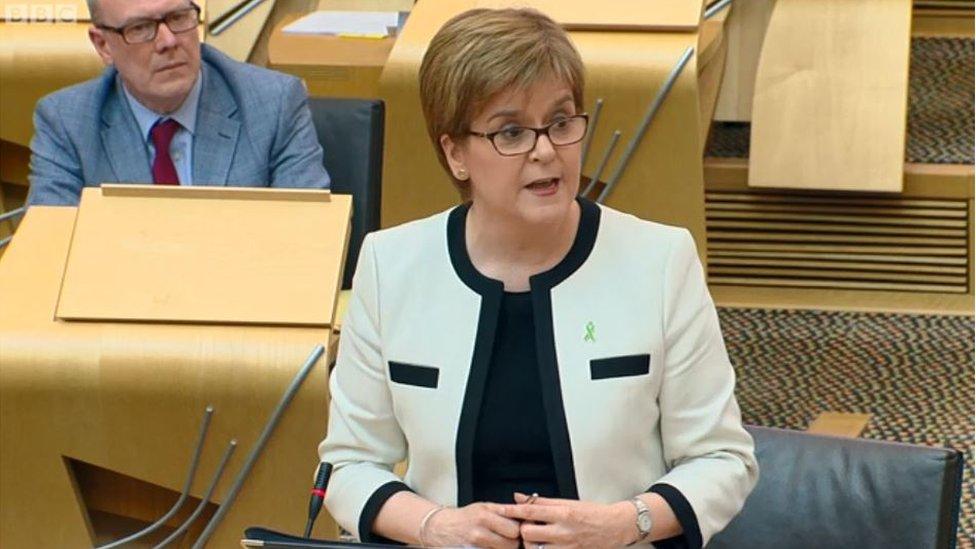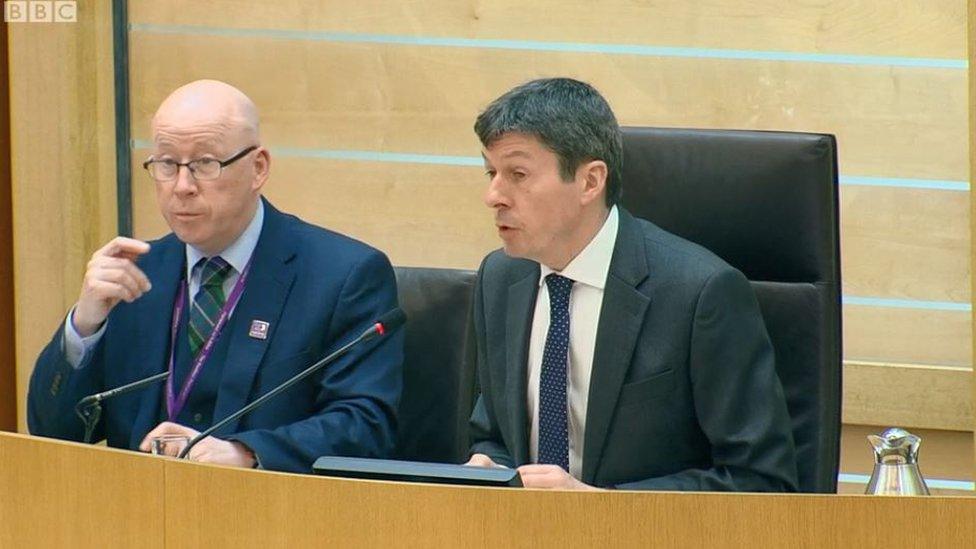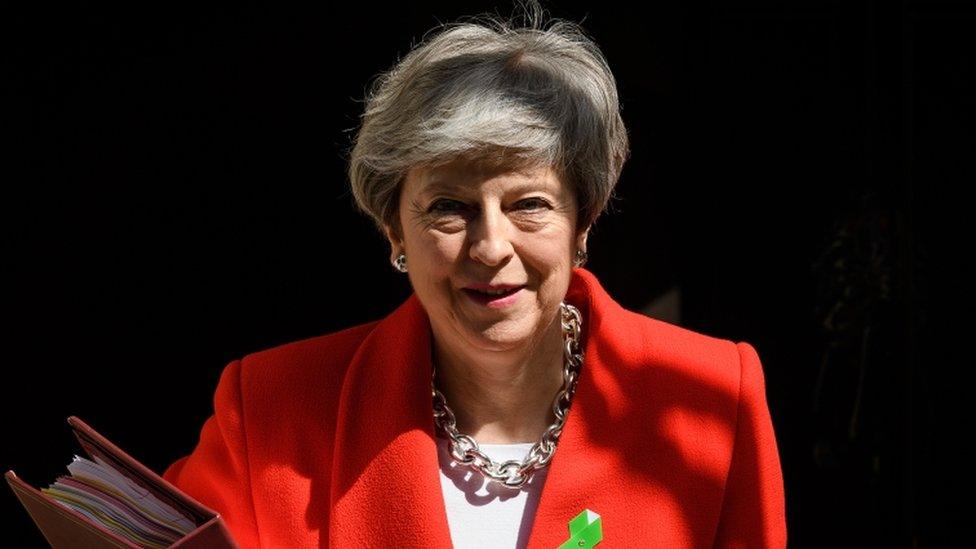Sturgeon saved from a Brexit-free FMQs
- Published

Somehow one could tell. Was the demeanour just faintly more eager than customary? Or was there an atmosphere, a political ectoplasm, offering a spectral clue?
Whatever, it seemed to this observer that Nicola Sturgeon was desperate to be asked about Brexit and the European elections.
Snag is it was obvious to the presiding officer too. And so, when it happened, Ken Macintosh intervened to suggest, gently, that Ms Sturgeon might tone down the overt electioneering.
Of course, he had alternative routes available to him, probably derived from his excellent BBC training. (Once imbibed, it doesn't leave you.)
He could have stepped in to say "other parties are available". Or he might have followed the practice generally adopted by BBC football commentators when industrial language is heard from the surrounding grandstand, perhaps anent the parentage of the ref.
Sensitive ears
That is, he could have apologised for the blatant partisanship which had filtered through to the sensitive ears of those watching/listening at home.
But one can sympathise with the FM. There she was, a week out from the European elections, her party seemingly doing rather well in the polls.
And would the opposition leaders ask her about the contest? Chums, they would not. It was left to her SNP deputy, Keith Brown, to rescue her from this dilemma.
Was it not the case, he inquired, that the rest were a shower and that the SNP were great? Or words to that effect.
Ms Sturgeon agreed. Although perhaps she foresaw her fate as she prefaced her election broadcast by noting, in slightly hesitant fashion, that the chamber would scarcely be surprised by her suggestion to voters.

Ken Macintosh warned Ms Sturgeon against electioneering during FMQs
The PO wasn't surprised - but he wasn't too pleased either. One suspects he had been on stand-by for a dose of backbench canvassing. But, even from the FM, up with this he wasn't prepared to put.
One can understand the reluctance of the main opposition parties to venture into Euroland. As Ruth Davidson arose to ask her question, the prime minister was having a cosy chat with her MPs who, unaccountably, are less than universal in praise of her efforts.
Scarcely congenial, then, for Ms Davidson. Still, she remains ebullient. When I challenged her on her party's prospects at her launch yesterday, she insisted that she loves all elections and relishes the challenge of this one.
It is all, of course, through a prism. For these are the ghost elections; a phantom contest whose true substance resides elsewhere, with Brexit and, in Scotland, independence.

Theresa May met the 1922 committee of backbench Tory MPs on Thursday
Herewith a thought. Would, perversely, the PM's prospects of securing a Brexit deal be enhanced by a poor result for her party in the elections, perhaps accompanied by gains for the newly-formed Brexit Party?
The thinking being that some previously truculent backbenchers might take fright at the setback and opt to support the PM, in order to bring the controversy to an end. Somehow, anyhow.
I put that to a Tory insider. The answer was a glum "maybe". Alternatively, my interlocutor suggested, the Brexiteer Right within the Tories might conclude that the election pointed to the folly of seeking compromise, that they should now go all out for immediate departure from the EU, without a deal if necessary.
And Labour? Just before Richard Leonard arose, there arrived in our in-boxes a statement on behalf of David Martin MEP, another Scottish Euro candidate and four of the seven Scottish Labour MPs, led by Ian Murray.
The statement praises the benefits of EU membership, describes such membership as "non-negotiable" and firmly backs a further plebiscite on Brexit.
No more than Mr Martin and some of the others on the list have said a number of times. But, of course, it has the side effect, by listing numbers, of spotlighting the fact that Labour does not have a uniformly agreed position on Europe, even in Scotland.
And so, at Holyrood, it was a Europe-free day for the first minister, until she was saved by her party deputy.
To be entirely fair, the topics chosen by all the opposition leaders were significant, sometimes solemn. They legitimately claimed a place of their own in our parliamentary discourse.
Ms Davidson pursued the question of statistics on numeracy in Scotland, arguing that ministers had reduced the data available by scrapping a previous scheme.
Nicola Sturgeon disputed this vigorously, arguing that the revised scheme offered information at school level, of value to parents. To emphasise, a valid dispute.
Both Richard Leonard and, later, Willie Rennie of the Liberal Democrats pursued the issue of provision for mental health care. Again, substantive.
For the Greens, Patrick Harvie challenged the FM over Climate Challenge Fund grants which, he said, were declining. Same verdict.
We can readily return to these and many other topics. Once Brexit is settled.
